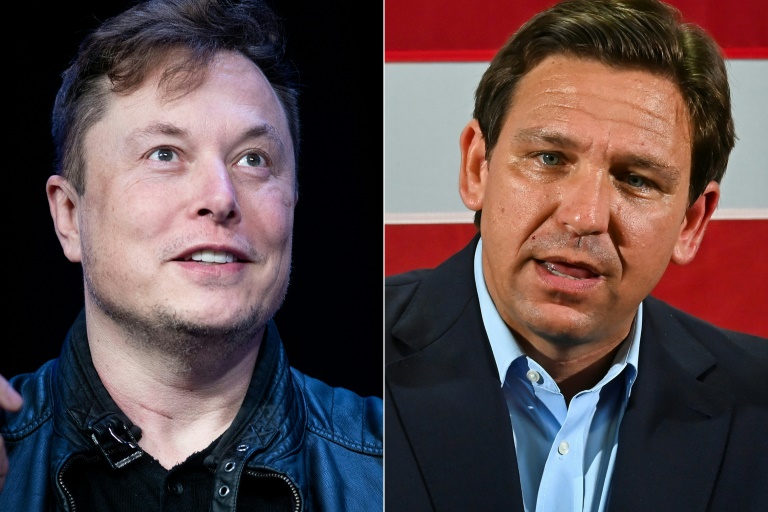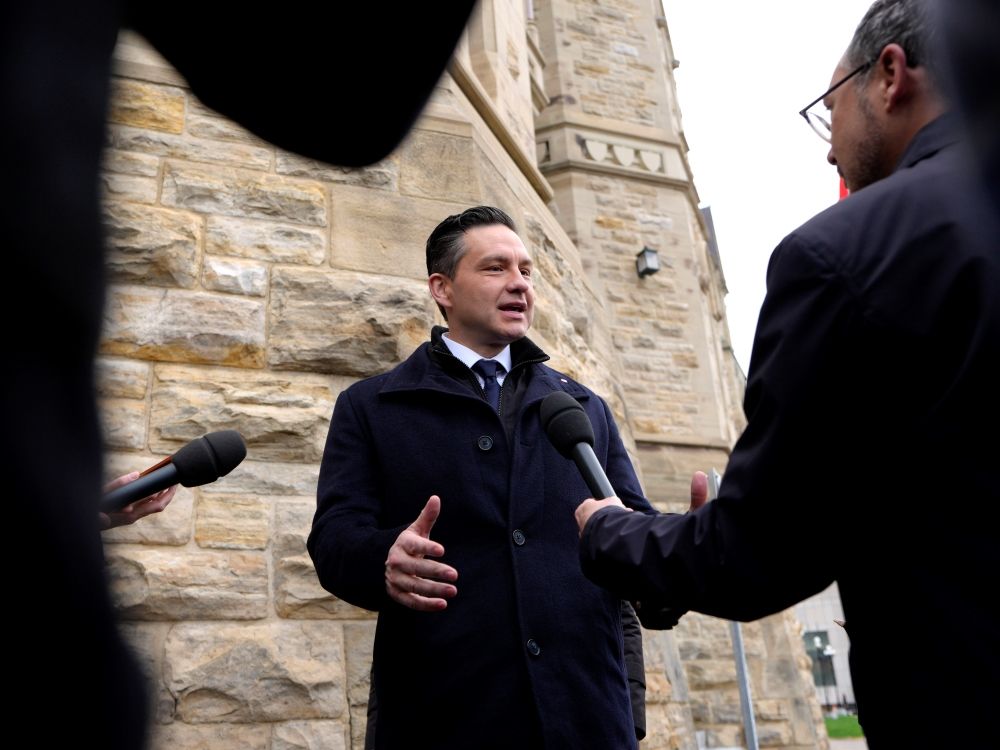AFP
By hosting Republican Ron DeSantis’s presidential campaign launch, Elon Musk sets up Twitter as a challenger to Fox News, but doubt remains that the right-wing pivot is a winning ticket for the platform.
DeSantis is considered a credible challenger to seizing the Republican nomination from frontrunner Donald Trump in the 2024 election, and his tie-up with Musk’s Twitter has generated buzz.
DeSantis’s choice of outlet for his Wednesday announcement follows news that ousted Fox News star Tucker Carlson will move his show to Twitter, and Daily Wire, a conservative news outlet, has also said Twitter will host its video and podcasts.
Musk has touted the events as his effort to turn Twitter into a marketplace of ideas and help turn his roller-coaster-ride buyout of the social media giant last year into a money-winning proposition.
“You’ve got to get people on the platform, you’ve got to get them spending time on the platform, you’ve got to get them to come back to the platform multiple times a day,” said Andrew Selepak, assistant media professor at the University of Florida.
“For Musk, he’s got to find big name users who will come and create content on Twitter.”
But the problem is that Musk is increasingly limiting himself to the right wing, which may scare away a chunk of advertisers that are willing to pay to display on Twitter.
“If it becomes an entirely right leaning platform, then yes, you would lose audience, you would lose advertising,” said Selepak.
Musk is being driven by two contradictory forces. On the one hand, he would like to see Twitter win him back his $44 billion investment and to do that he will have to keep advertisers on board.
But on the other hand, Musk wants to remain Musk.
Major advertisers fled in droves after his takeover, unimpressed by the tycoon’s mercurial behavior and the firing of thousands of people, many of whom scrubbed away bad content from Twitter.
Initially, Musk set out to do without them, plugging an amped-up subscription service that would compensate for the loss of revenue.
He also welcomed back banned accounts and shooed away the media establishment by branding top-tier news groups as state-affiliated media or removing authentication for the accounts of journalists and celebrities.
But with his push to build a subscriber base flailing, Musk tacitly admitted defeat by poaching Linda Yaccarino as CEO.
Yaccarino is one of the world’s best-respected ad executives, who built deep relationships with the world’s biggest brands as ad boss for NBCUniversal, the media group.
But Musk still firmly insists on maintaining his free-wheeling inclinations that can include dabbling in conspiracy theories and far right tropes.
Asked in a recent interview if he thought about the business consequences of his uncontrolled behavior online, a clearly provoked Musk answered: “I don’t care!”
Musk’s critics believe that refusal to stay above the fray will deny him the trust of blue-chip advertisers.
“The people that Musk is bringing on board are among the most disturbingly bigoted forces on the right,” said Matt Gertz, senior fellow at the left-leaning Media Matters group.
“The Yaccarino hiring and this are contradictory — these are moves you make if you want to cultivate a subscriber base of far right extremists, not if you want to make money off of advertising,” Gertz said.
Others, however, point out that conservatives have managed to carve out a way to make big money from media.
“Profits have always been the priority …(and Musk) is tapping into a model that has been successful on talk radio and Fox News,” said Kathryn C. Brownell, assistant professor at Purdue University.
Moreover, Fox News dominance of US TV news is currently in a rough patch.
If it doesn’t work, Musk will more than likely have to fork out more money to back Twitter.
“Anything is achievable when you’re a billionaire in that regard. If he wants to pour another $40 billion into creating Twitter News, that’s the only way it could really work,” said Roy Gutterman, Syracuse University professor and director at the Tully Center for Free Speech.
“To have even a quasi news outlet, you’re still going to need a pretty costly infrastructure…Fox News didn’t develop overnight,” he added.






